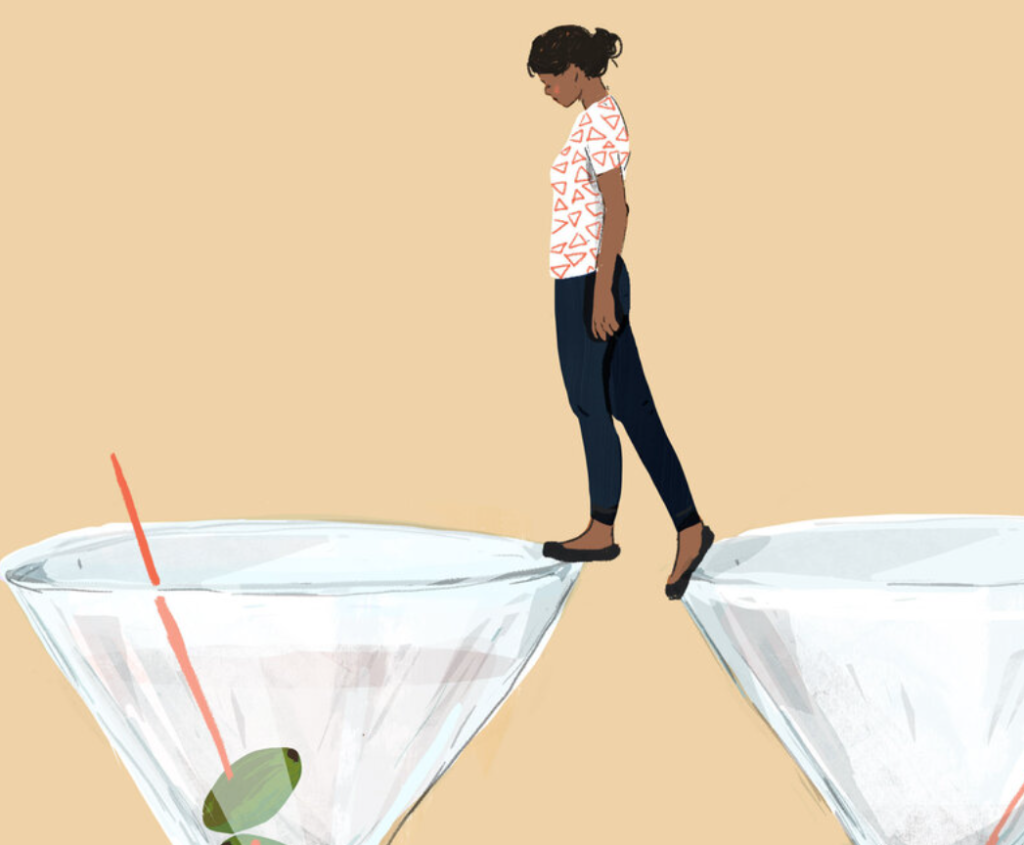Women and Alcohol are catching up to men when it comes to drinking, which doesn’t seem like a good thing. They’re also putting themselves at more risk of health problems than men.
This is due to their body compositions, which allow them to achieve a higher blood alcohol level than men. This can result in increased dehydration, blackouts, mental health disorders and more.
It Can Destroy Your Self-Esteem
A toxic cocktail is a mix of harmful substances that can be extremely dangerous to your health. These combinations can cause serious health problems, including organ damage, brain damage, and even death.
Alcohol is the most common ingredient in toxic cocktails. It can be found in alcoholic beverages, cocaine, heroin, methamphetamines, and other illegal drugs. It can also be purchased in legal forms, such as pills, syrups, or sprays.
Drinking can help people temporarily boost their self-esteem, but it can have negative consequences in the long run. It can worsen feelings of low self-worth and cause them to engage in risky behaviour, leading to more negative consequences.
Having poor self-esteem can make it harder to achieve goals and can lead to depression, anxiety, and substance abuse. This can significantly impact your quality of life and lead to poor relationships with family, friends, and romantic partners.
One of the biggest causes for lack of self-esteem is an unhappy childhood or abusive relationship. These conditions can leave a person feeling like they aren’t good enough and that they have no value in the eyes of others.

These feelings can lead to addiction, but they can be overcome with the help of a professional. The sooner a person can recognize the issue and seek treatment, the better their chances of overcoming it will be.
The battle with alcohol can be a complicated one, especially for women. They have unique motivations for drinking, and they can suffer from addiction differently than men do. Taking a gender-specific approach to treatment is vital, says Sugarman.
It Can Destroy Your Relationships
Alcohol has many harmful effects on the body but can also hurt relationships. Women are more likely than men to experience depression and anxiety, and heavy alcohol use can exacerbate these problems.
Moreover, alcohol abuse can make it difficult for you to spend time with your loved ones and care for them. For instance, you may forget important dates because of drinking or cancel your plans due to a hangover.
This can cause you to lose touch with your partner and make them feel like they aren’t a priority in your life. It can also affect the intimacy in your relationship, as you won’t be able to provide the physical intimacy that you once did.
According to Medical Daily, prolonged consumption of alcohol can inhibit the ability of the penis to produce an erection. This can cause a person to lose interest in sex, as they will no longer be able to perform well, and it could even lead to a breakdown in the relationship.
As a result, talking about your drinking habits with your partner is crucial. This will help you determine if there is a problem and what steps you need to take to fix it.
It Can Destroy Your Health
If you’re a woman who has a hard time keeping track of how much alcohol you drink, you’re not alone. According to the Centers for Disease Control and Prevention, women are more likely than men to binge drink regularly.
Heavy drinking can wreak havoc on your health. It can weaken your immune system and make you a more susceptible target for diseases like pneumonia and tuberculosis. It also increases the risk of cancer, alcoholic liver disease and heart attacks.

Aside from causing a host of health problems, drinking can lead to suicide and death. Women who have an alcohol problem are twice as likely to die from suicide and accidents than men, studies show.
This is because women metabolize alcohol differently than men, so they’re more susceptible to the harmful effects of alcohol on their bodies. As a result, it’s essential to understand that the amount of alcohol you drink is a personal decision.
When deciding whether to drink, it’s essential to consider your age, weight and health. You’ll also need to decide what level of risk you’re willing to take.
NIAAA, the National Institute on Alcohol Abuse and Alcoholism, recommends that women drink no more than seven servings of alcohol per week. However, some factors can influence this recommendation, including a woman’s weight and health, genetics, family history, and age.
While women are consuming more alcohol regularly than ever before, many are unaware of the adverse effects of their drinking habits. This is partly due to societal pressures and the alcohol industry’s targeted marketing to women, says Dr Jennifer Ashton, ABC News chief medical correspondent and a board-certified OBGYN. If you’re a woman struggling with your alcohol consumption, she said it’s essential to talk about it with a trusted friend or a mental health professional.
It Can Destroy Your Relationships With Your Kids
Alcohol is a popular way for women to cope with stress. We see images of overwhelmed moms guzzling wine on social media and in movies. But drinking can be dangerous, especially for women.
While we may think of alcohol as a way to relieve stress, it can be a dangerous addiction if you drink too much. It can lead to problems, including infertility, pregnancy complications, and cancer. It can also destroy your relationships with your kids.
One of the first signs that you are consuming too much alcohol is that it is affecting your daily life. It might affect your work or make you late for appointments. It might cause you to have a hangover the next day, and it might even make your children feel neglected.
Moreover, your drinking habits might not make you comfortable in your relationship with your partner. You might become angry or overly emotional when you drink, and you might start hiding the fact that you are drinking from your partner.
When you have difficulty controlling your drinking, it is crucial to seek professional help. This can signify that you are developing an alcohol use disorder, which is more severe than casual drinking.
Another red flag is that you are unable to resist getting drunk or binge drinking. You might be unable to say no when your partner asks you to go out or order drinks. If your drinking habits make it difficult for you to care for yourself or your kids, you will likely suffer from alcohol addiction.
It Can Destroy Your Relationships With Your Parents
Alcohol is an addictive drug that harms women’s health and mental health. It can influence the brain, liver, heart and reproductive system and can increase the risk of certain cancers.
As a result, it is important to drink responsibly and avoid excessive or binge drinking. Depending on age, health, genetics and family history, women should limit themselves to no more than seven drinks a week or three drinks a day.
A few glasses of wine or cocktails can make you feel like you’re in a better place, but too much can negatively affect your life and relationships. If you’re a regular alcoholic, it may be time to take a step back from your habits and make some changes.
One way to start is by making a list of what you want to change, such as cutting back on your drinks or limiting how often you get drunk. Once you have a plan, you can keep yourself accountable to it by setting and achieving goals for yourself.
Another effective strategy is to find a friend or mentor to support you. They can offer advice and help you set new goals and achieve them.
It can be hard to reach out for help when you’re struggling with an addiction. It can be helpful to have someone who can listen to you and help you sort through your feelings.
Your kids can also help you work through your issues. They can write down your questions and concerns and share them with someone they trust, such as a teacher, grandparent or counsellor.
If you have a parent who has an alcohol problem, it is crucial to seek out help. Talking to an adult you trust can be the first step in breaking a cycle of abuse and getting your family on the road to recovery.


